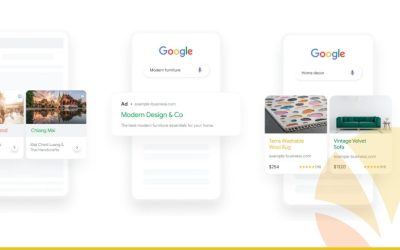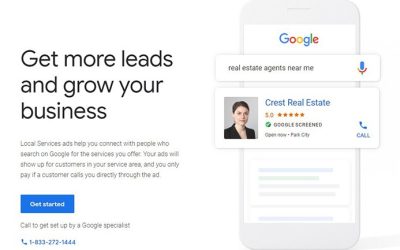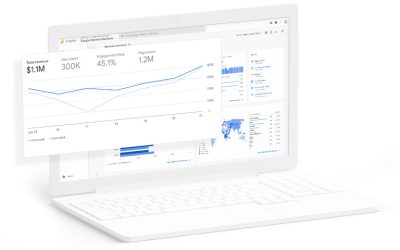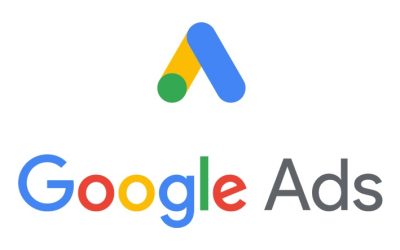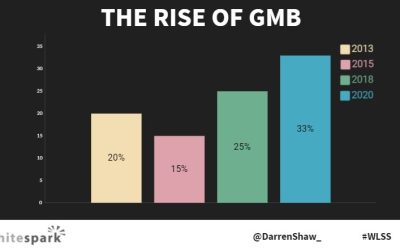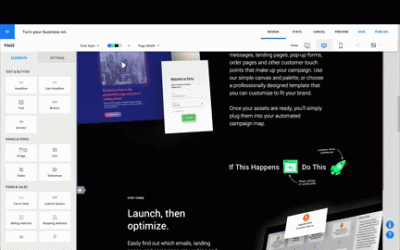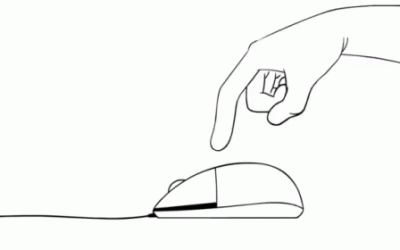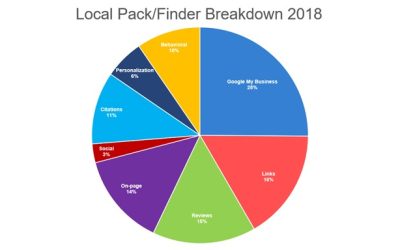Marketing objectives are the cornerstone of any successful marketing campaign. Have you set marketing goals for your business? Do you have marketing objectives that are based on real, historical data? Or do you set goals based on some subjective instinct or desire?...
Expert digital marketing insights.
Blog Insights
Google Performance Max: When to Use, How to Use and Google Ad Specs
Google Performance Max campaigns are one of the newer ad types offered on the Google Ads platform, presenting yet another ad type for advertisers to consider. While these campaigns can drive some compelling results, this isn't always the case. Our Google Ads agency...
Marketing Performance Measurement: Is My Marketing Working?
In the ever-evolving landscape of marketing, one question reigns supreme: Is my marketing actually working? It's a query that plagues businesses of all sizes, yet the answer lies in the data. It's essential to delve into the metrics of customer acquisition cost (CAC)...
The 90+ Google Guaranteed Categories Eligible for the Google Screened Badge
LAST UPDATED: 2.28.2024 If you haven’t heard about the Google Guaranteed categories or the Google Screened program, you might be missing out on an opportunity to add even more credibility to your business directly in the search results. The program is simply a process...
13 Lessons We Learned from Managing $1,000,000+ in Google Ad Spend
In the ever-evolving landscape of digital advertising, Google Ads remains a key channel for businesses aiming to reach their target audiences and drive conversions. After managing $1,000,000 in Google Ads spending on behalf of our clients, we've gained invaluable...
Transactional Keywords: The Best Type of Keywords for Lead Generation
Table of Contents Types of Keywords What are transactional keywords? Importance of Transactional Keywords Local vs. Non-Local Transactional Keywords Challenges with Transactional Keywords Critical Ranking Factors for Transactional Keywords Google Ads for Transactional...
Expectation Setting: Tips for Choosing a Digital Marketing Agency
Within the complex and ever-evolving space of digital marketing, your marketing agency selection is an important one. Here, we look at seven qualities that you should expect from your agency. There are many types of digital marketing agencies, but regardless of the...
How to Generate More Leads from Your Website: Optimizing Your Forms for Success
If you run a business seeking growth, it is critical you understand how to generate more leads from your website. An essential aspect of achieving this goal is optimizing your website forms. In this post, we'll explore strategies to help you boost form submissions,...
GA4 vs. Universal Analytics: Making the Transition & Improving Your Data-Driven Insights
You've likely heard about the update Google is making to the Google Analytics platform. So, what's the difference between GA4 vs. Universal Analytics? With Universal Analytics no longer collecting data as of July 1, 2023, understanding the differences between the two...
Types of Marketing Agencies: How to Select the Best Marketing Agency for Your Business
When it comes to business growth, how you decide to spend your marketing dollars will make all the difference. The complexity of the digital space requires a high-level of expertise and strategic know-how to navigate effectively. However, many businesses are left...
Keyword Research Service Providers vs. DIY: Tips for Approaching Keyword Research
Keyword research is a crucial component of any successful search engine optimization (SEO) strategy. It helps businesses identify the most relevant and profitable keywords to target, which can ultimately lead to higher search engine rankings, increased visibility,...
How to Build a Brand Identity Online
Wondering how to build a brand identity? In today's digital world, building a strong brand online is essential for businesses of all sizes and a strong brand can differentiate your business from competitors. Also, it can increase customer loyalty which supports in...
When Google Ads Make Sense for Your Small Business & When They Don’t
Advertising on Google isn’t limited to the text ads that show up at the top of search results. The Google Ads platform also includes display or banner ads that show up on third party websites like news publications, as well as product ads that show up in product...
Your Google Ad Performance Is Getting Worse – Here’s Why
Google Ad performance is the measurement of results driven by paid online advertising on Google’s advertising platform. The determination of whether performance is good or bad is a function of the goals and objectives of each campaign. For example, a YouTube campaign...
Running A Brand Awareness Campaign? Here’s How To Track Brand Lift Online
Whether you’re running a traditional ad campaign via TV, Billboard or Print Media, or you’re doing a huge “awareness” push via digital display and social ads, understanding what metrics to track to determine success of the campaign is critical. While you’ll have some...
How To Build An Email Marketing Strategy – The Basics
When looking for ways to market your business, email marketing can be a cost effective way to connect with your current or future customers. While cost effective, many companies are sending emails and hoping for opens and clicks. Though that tactic may see some...
6 Ways To Improve Your Speed to Lead
Attention is arguably one of the hardest things to capture in any context. Whether out to eat with friends, or marketing your business online, distractions are everywhere and life tends to move very quickly. One Microsoft study puts attention spans around 8 seconds on...
4 Ways to Use TikTok for Business
There are different ways to use TikTok for business. It's important to know how to leverage this platform. TikTok marketing is one of the keys to success. It's good to know this platform considering its consistent popularity growing popularity. What is TikTok? TikTok...
Marketing Isn’t a Commodity – It’s a Strategic Investment in Discovery
Oftentimes business owners and executives get hung up on various aspects of their marketing spend when it comes to advertising and marketing. What does it cost? What is the ROI? How much should I spend? This effectively boils marketing down into a commodity. While...
What Is Marketing Operations & Why Does It Matter?
Marketing operations is the integration of any type of technology, system or process that supports marketers in driving key business results. From software and analytics set up, to conversion tracking, marketing operations helps marketing teams work more effectively....
Study: 2020 Search Engine Ranking Factors – Local Pack vs. Organic
Started in 2008, the Local Search Ranking Factor survey, seeks to break down the factors impacting ranking for local searches (aka searches with local intent). The study takes the feedback from the most prominent SEO experts in the space to unpack Google’s search...
5 Google Ads Tips to Grow Leads & Improve Conversion Rates from Your Search Ads
Google made over $134 billion in advertising revenue in 2019 for one simple reasons: user intent. When someone searches for something on Google, they are expressing their intent. Advertisers that have a product, service or relevant answer to that query seek to show up...
Study: 92% of Small Businesses ‘Pivot’ Amidst Pandemic & Ecommerce Explodes
Out of necessity, small businesses have been forced to consider new ways of conducting business. Whether the long-standing business or the start-up, everyone is feeling the impact of the coronavirus pandemic. However, the response from business owners is extremely...
The Connection Between Ecommerce Product Data & Google Ads
Video Transcript "If you run an e-commerce business and you're selling products online, it is critical to understand the connection between your product data and your ad performance on Google ads. So, one of the most common kind of ad types that an e commerce...
The Importance of Website Speed for SEO
A fast loading website does more than just offer a great user experience. In fact, page speed is a major factor that can impact your search engine optimization (SEO). Google’s mission is to highlight the most relevant and user-friendly websites when someone conducts a...
Google Search Engine Optimization Trends & Stats You Should Know
Search engine optimization (SEO) is a complex undertaking. It starts with understand what factors influence search results. While Google and other search engines don’t outline how their search engines behave and what factors drive the results, marketers and SEO...
Study: 82% of Consumers Read Online Reviews for Local Businesses
The number of consumers who look at online reviews has continuously increased as our world has progressively become more and more digitized. Ample research on this subject has been conducted, and the results emphasize the importance of customer reviews, both good and...
Link Building: The Hardest, Most Powerful Tactic for Local SEO
When it comes to search engine optimization (SEO), it is critical to try and think like Google. While Google’s search algorithm is the company’s secret sauce, they do offer some general insight into how search engine algorithms work. According to Google: With the...
Google, Facebook, Microsoft & Others Offer Small Business Support During COVID-19 Crisis
Many software and digital technologies are stepping up and offering free tools and resources during the COVID-19 crisis in an effort to support your small business. While many small businesses around the US have closed their doors, made tough layoffs and reductions in...
How Marketing Should Pivot to Communication During COVID-19 Crisis
The reality in today’s world is that many people are feeling the uncertainty and anxiety given the current health and economic situation resulting from the spread of the COVID-19 virus. Between the growing number of people being impacted by the virus, to...
Why Word-of-Mouth Recommendations Aren’t Enough Anymore
It isn’t hard to believe that word-of-mouth recommendations from people you know is the most trusted form of “advertising.” While you might not think of these kinds of recommendations as advertising, they most certainly are. It’s a type of “earned” advertising that...
Hiring A Marketing Agency in 2020? Here’s What To Look For
Any business that is looking to grow in 2020 or expand into new markets understands the importance of an effective digital marketing strategy and hiring a marketing agency to execute that strategy. From both the strategy development to the execution, your marketing...
What You Need to Know About Marketing Funnels
You’ve probably heard or read about “marketing funnels” or “click funnels.” The idea isn’t new and is pretty simple – when someone engages with your website, your web design and call-to-actions seek to move a user towards a key action or purchase. However, the art of...
5 Types of WordPress Plugins Your Business Website Must Have
There are many types of WordPress plugins. When it comes to building your website on WordPress, you have a plethora of tools available to you in the form of plugins. These plugins allow you to bring more sophistication to your website without needing to have expert...
8 Steps for a Winning Digital Marketing Strategy In An Increasingly Competitive Ecosystem
Digital marketing today is extremely competitive. Businesses big and small are well-aware of the power that an effective digital marketing strategy can have in reaching, engaging and converting potential customers. For this reason digital marketing is no longer a...
Marketing Is Like Real Estate – You Either Rent, Own or Share Your Reach
The world of local marketing can be split into two primary buckets – online and offline. Businesses typically allocate marketing dollars to a mixture of channels that span the digital space and traditional media channels. Depending on the industry, both serve a...
Pros & Cons: DIY Website Builder vs. Web Developer vs. Marketing Agency
When you’re in the market for a new website or a website redesign there are many different providers and technologies to choose from. You will more than likely approach the entire project using one of the following methods: completely do it yourself (DIY), do it with...
Most People Don’t Look for Your Business Online – They Discover You
A new study analyzing data from 45,000 Google My Business (GMB) profiles has found that the majority of people researching a purchase will search on Google using a category, service or product keyword searches vs. a specific business name. The split, according to the...
Study: People Spend Over 6 Hours Online Each Day, Mostly on Mobile
The importance of effective, interesting and value-adding marketing continues to increase. It's not shocking news, but with only so many hours in a day, as people spend more and more time with digital media, this creates more an more opportunities for brands and...
Google Wants to Help Your Small Business Get More Foot Traffic with Local Campaigns
Over the last couple years, Google has made a substantial push to improve its online advertising options for small businesses, an audience that has historically been underserved in this area. While big brands spend thousands and thousands of dollars on Google search,...
While Marketers Embrace ‘New’ Tech, Small Businesses Need to Get the Basics of Digital Marketing Right
While marketers test new tech and strategies, small businesses continue to prioritize the basics. Two recent studies identify this gap, but there is also one area of alignment: content. The reality in the small business marketing space is that those who seek agencies...
Study: 76% Used Social Media to Research Your Small Business
People are going online to find information about you and your business. It’s the reality of commerce today. While some businesses can survive simply on an established reputation and strong referral network, digital marketing is a necessity for new businesses and...
Hiring a Digital Marketing Agency? Here’s 5 Tips for Selecting the Right One for Your Small Business
How can you tell if a digital marketing agency is right for your business? How do you determine if they are worth whatever price they have provided? How should your small business compare multiple providers against each other? When assessing a digital marketing...
Beyond Clicks: Digital Marketing Analytics Your Small Business Should Be Tracking
Many small businesses struggle to answer the "is it working?" question when it comes to their digital marketing. For those business owners that DIY their digital marketing, the time it takes to execute the work leaves little room for tracking, analyzing and optimizing...
Google Is Driving Fewer Clicks to Your Website & Here’s Why
While you may not have noticed, Google has been evolving the search engine results page (SERP) for years. What use to show up as a selection of the most relevant "organic" blue links has now become a page diverse with images, maps, ads and answers to your questions....
The Relativity & Illusion of Digital Marketing ROI
Imagine a city where on the same day two coffee shops open that have very similar menu items from a product and quality perspective. There are no other competing coffee shops or cafes nearby. One of the businesses has invested in a robust digital marketing strategy...
Starting a Business? Do These 4 Things First
Entrepreneurs and small business owners usually get started with a dream, a passion, a skill, an idea, an intuition, some luck and sometimes a push from the people around them. Spending the time visualizing the business and the work is extremely exciting, but starting...
9 SEO Tips for Improving Your Ranking on Google in 2019
Last month we presented a MarketingBitz webinar exploring the state of the search engine results page (SERP) on Google, how its changed, and offered 9 search engine optimization (SEO) tips to utilize in 2019 to improve your business's organic rank and your rank in the...
Ice Cream to Collar Seams – Every Profession Is Art and Science
Have you ever watched someone do some everyday task but find yourself struck by how efficiently and effectively they do it? Whether it’s the speed and precision of a master tailor or the perfectly round ice cream scoops at your favorite parlor, with practice and...
Why the Customer Experience (CX) Is More Important than ‘Ranking #1’ on Search Engines
If you haven't heard the term "customer experience" (aka CX), its likely to be the concept that drives strategies for businesses of all sizes in 2019. Simply put, customer experience is the experience a customer has when interacting with your business. This includes...
Is Digital Marketing a Cost of Doing Business?
Of course we think digital marketing is a cost of doing business. We're a digital marketing agency! But there's more than just self-interest behind our perspective. The reality of today's digital consumer is that the vast majority of people, from Gen Z to Boomers, are...
7 Fundamental Website Features Every Business Website Must Have in 2019
Depending on your business and the products/services you offer, your website will range from extremely simple to very complicated from a coding and development perspective. But wherever your website falls on the complexity spectrum, there are fundamental features that...
First Impressions Form in Less Than 50 Milliseconds – Why Logos, Colors & Digital Design Matter
There are all kinds of stats that point to the importance of digital design and creative when it comes to your website and your digital marketing overall. The most compelling of those stats is the speed with which opinions are formed online. According to a Google...
What Determines Your Search Engine Ranking on Google?
There are many factors that influence how high a business ranks on a search engine result page (SERP) for a particular keyword. Each year Moz seeks to put an actual figure to the influence of over 100 of these factors. Surveying over 30 prominent search engine...
Do Digital Marketing Growth Hacks Exist?
Sales pressure and revenue objectives often push many businesses into pursuing growth “hacks” and various short-term and in some cases unethical digital marketing strategies. From email list buying, to keyword stuffing, to soliciting reviews from friends/family,...
Why DIY Digital Marketing Isn’t Sustainable for Most Small Businesses
Starting a business of any kind isn't an easy decision to make, no matter how good at something you are. For many small businesses, the reality is you're really only practicing your craft a fraction of the time. For some it's probably close to only 50% of the time....


